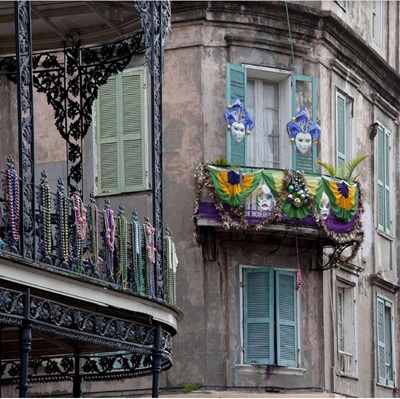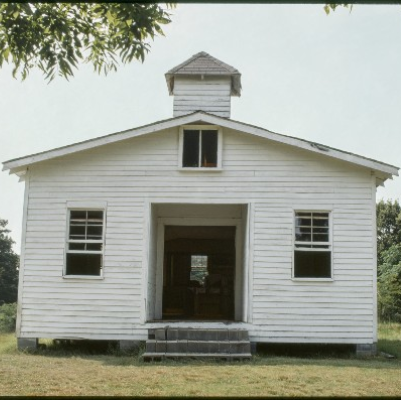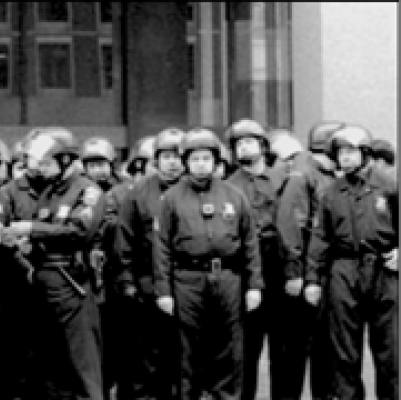The Musician Poet
I am the musician poet –
I write in four or five.
I see the cosmic in the everyday,
The everyday in cosmic principle
That’s caught by words and phrases,
And by phases of the moon,
Winter’s afternoon.
Every jazzy tune
Affects the rhythms in my mind,
Guiding rhythms of the hand,
Cleaning up each truth I find:
Tuneful strand a godsend.
In the blend of trills:
Diamonds and daffodils.
In the cold and crunchy night snow diamonds,
Knowing cold will bring on gold:
The phrase ascends,
Transcending spring.
Something indescribably exquisite –
Being-ness of which elicits feelings
Fielding joy.
Juxtaposed: jewel and flower
Put there by the power of word –
Strings of letters (there is mystery
In letters)
All those Cabbalistic claims,
Mantric callings, lists of names,
Holy flames,
Secret games;
Instruments to plumb the psyche –
More: infinity.
Voicings
I used to bother with harmonic
voicings.
I’ve gone back – or backwards.
Somewhere I lost interest,
Lost the taste for
Placing notes for sake of texture.
I discovered I don’t care.
Central to the jazz pianist,
Voicing gives a class and status:
(More than sevenths, ninths, elevenths
thirteenths: triads
for the in-crowd)
I discovered
I’m baroque -ish
I like bass lines;
Poking ‘round the melody.
Tune against a tune,
They keep the time.
Are drum, (a kind of drum).
While I can hum, sing song,
A bass line comes along
Enriching melody
And me
And music overall.
I used to be concerned with voicings.
Somewhere I lost curiosity,
The energy to search and find…
Out of my hand, out of my mind.
Maybe I got lazy.
Maybe I got simpler.
Thinking On Your Feet Is
Gift, art, yoga;
Leading to a
Modus operandi,
Jazz,
Invention,
A defining fun.
Creation in a flash;
Living
In a now,
No deed is left undone,
Not one day gone,
Neglected or unloved.
Thinking fleetly on your feet,
Eliminates, eradicates:
Fear of fiasco,
Worry, stress, for not one
Thing can fail you;
Neither falling on your bottom
In the middle of your show
Or whatever else you’re doing.
Trivial and valuable –
It’s all significant,
While none of it means anything at all;
The usual
Illogicality.
Years of practicing
Improvisation
Mean that
Error’s never really wrong,
So
Practice,
Use life as an etude.
Make etude of every song.
Life plays.
All The Way From Sweden
All the way from Sweden
I can’t help but natter on:
Poetry and
Jazz and
Being.
Jazz: the art of improvising;
Song a mantra/koan,
Mindfulness – a Zen;
A yogic thing
One ought to do
While in the bath, in bed,
While on the road,
Or looking through the window
At a cloud:
Everything and anything a jazz.
****
Life and jazz: the distance between seconds,
Records kept inside your cells
And held there
All the years of breath;
This is your wealth in action.
You Can’t Look Pretty And Concentrate
(on seeing a film of Keith Jarrett’s Tokyo concert 1996)
It’s either/or:
You can’t look pretty and concentrate.
It is a kind of war between
The ego and the thing,
The thing, the more important.
It’s nice if you relax,
A glass in hand, donned new pressed slacks;
To smile and see them smile too,
Eye contacting, all the while
Performing so the thing will gel,
Aiming at a phrase well done.
But skill and fun don’t fuse,
The thing demanding less than booze;
The thing demanding ears and eyes,
Pinpointed agonizings that arise
From neither glam- nor clamor.
Calm inward
From chord to keyboard,
There’s a sword that cuts through
The cosmetics and the art.
You can’t look smarty pants-y smart
When working at the heart of art;
Your heart. It’s not a role
But art, combining beauty, subtle flexibility,
Intellect that doesn’t show
But steers, keeping in tow
The years it’s taken. Pretty is as pretty sees.
The job is: search and strip sans tease.
The viewer only ever sees what he is able to.
The thing has got to be continually fresh
Since flesh is weak and soon antique
But music’s thing will always speak
To souls of concentration.
Another Mystery of Talent
She could see,
To be a star
Was nothing more
Than being the most popular
Girl on the block or in the class
Or school, and that the whole
Was minus
Meaning, point:
She saw that early.
Still she strove.
Without a clue or hint
As to what drove her.
It will always be
Another mystery
Of talent.
In Search of Himself
He plays a Mercer “Out of Nowhere”
Over, over…
Tatum tempo, Tatum phrases
That have hung around
Since youth, the days
When Art was art for him.
Now, and only now he’s found
That what he plays
Is literally out of no ‘where’,
Searching for an unrecorded track,
Although still stuck
On Art.
You Can Be A Genius And Be Sane
Watching Monk* and watching self,
One senses that one can have genius
And be sane.
You can
Be odd,
The brain its own,
To nail the themes
Your thought-extremes deem right.
Monk plays and pounds
In rhythmic spasms;
Clowns around, a whirling world
Of peaks and chasms
Hell or heaven sent,
Forever in his moment.
Yet you can be a genius;
Calm and tidy, rational, articulate,
Organized, aesthetic,
Well coordinated and athletic;
All of these down to your knees,
Your genie with you when you please;
Your central point, your solo want,
To use as it befits a genius
In whichsoever form is yours.
*Thelonious Monk jazz pianist 1917-1984
Stan Getz Is Dead (take one)
If someone should give you the choice
Of being a world famous voice
And dying at sixty-four.
Would you want more?
If, dying at ninety,
With nothing done
Worthy of note
And an otherwise un-famous throat,
Would you elegize, cry
That the lights passed you by,
That the clang
Of the tang
Of achievement,
Burned up in the flames
Of no-fame and bereavement?
‘Cause “Bob’s your uncle” you go anyway –
Someday.
Is the meaning of genius intensity,
Making just sixty a hundred and three?
Or would you choose calm mediocrity?
Maybe one hasn’t a choice.
From Stan Getz Is Dead (Take Two)
As it comes bar by bar
Until one year
It’s time,
Without fear and with calm,
To fall nicely asleep,
Having sensed from your dreams
And the use of I Ching
That the song that you sing
Is about to be sung,
With no qualms
Since you’ve sensed something sweet
That’s about to delete
The hard won daily wheat
By the hints of completion
That come through somehow,
And the circle shows signs that the end is just right
And you peacefully bow to-and-out of the Now
With no fear of the bed that you’ll lie on that night.
Rhapsodizing Confusion
He sits there rhapsodizing,
Music going
On and on,
Theme scarcely clear.
What he needs is an arrangement,
Inner order,
Something to hang on to, an
Internal girder, welder, builder, candor,
Some reminder to bind
A to b to c to d and finally to z:
An end and means to send it,
End it!
Is it rhapsody, improvisation?
His seems like bewilderment and misperception
Fueled by laidback lack of fire
Fused by movement going nowhere.
He thinks he was Socrates,
Calls it jazz.
We drown in his repose.
I think if I were in his clothes
I’d agonize, I’d make some noise.
No, he keeps on and on,
Just playing, rhapsodizing
In confusion.
Jazz Musician Always
It isn’t that I like to cook,
But looking
In the fridge and knowing that
We have to eat,
The jazz musician in me
Beats away, theme there,
Means there already
(pots, pans, stove and lots of food,
for which I thank the Lord,
the means luxurious indeed)
And some creative series
In some wordless way
Says “Hmmm” which ‘hmmm’ computerized,
In ones and zeros in the brain
Connects away, combining several
Million links – all for the good
Of those I feed,
And lo, out comes the food – a meal.
This is a miracle –
Like playing jazz.
Aiming At More Freedom
Each time I play
I think I’m fine and firm.
It’s fun, I feel fulfilled.
I listen back. I wasn’t free.
How to play more musically?
(Or if you want to use the word)
Progress?
To sense completion –
What a blessing that would be!
Or is the trip continuous?
A boundless one?
An endless one?
A ceaseless one?
A changing and ongoing one,
Eternal and ethereal,
A source to dig from, build on.
Musician/Singer/Poet
Everyday
A thing
To say,
To sing,
To play.
That is my life:
A universal in the daily.
Techniques learned
While singing Kern
And reading –
Simple reading
Leading
Everywhere.
We Need Listeners Too
We need listeners too!
Boo-hoo, when
There are none,
Not one receiver.
You, the hearer,
Are the bearer
Of and from this generation
on.
A musician needs to ripen
in the open
And to ripen he needs you.
(one tiny answer to the question).
Improvisers of this world,
Must give it out:
This music beat, this sometimes shit.
Not for the income, no!
They need the listener,
Audio-
phile who,
Himself must, in his soul
Have music
For his wholeness.
My Genre Is Jazz
My genre jazz
Has
Been since I was…
Temperament
Which bases days,
Their doings
On a ground
Resembling chaos,
Playing ‘round
With themes that show up
Or been planned
From frames that caffeine brings.
Jazz
Is
An improvised
Now-think;
Its idioms infinite as man.
Mine cool, the medium
Piano/voice,
Of course,
The genre jazz
Whose rule is the school,
Whose school is the rule
Of my genre.
To A Trumpetless Musician Sitting Tuneless In The Tombs*
Is his lot’s to rot,
Then rot he does;
Because of what?
Above the car-horn din,
Horned in by gloom,
Aloof, a genie sings within/
Without his being.
Now entombed,
Not faring well,
One city cell,
One man of music
Sans his trumpet.
Justice, just this once?
*The Tombs is a NYC jail. Tony Fruscella was a luckless genius trumpet player put in jail for possession of marijuana. He died in July 1962, aged 42 (See Why Did He Die) He recorded little but influenced everyone he met or played with.
So Much To Do, So Little Time To Do It In
For Michel Petrucciani
A little man, glass bones disease.
A la Lautrec: two prodigies.
At thirty-six his lungs gave out.
We cried, we would not be consoled.
Prodigious talent
Playing jazz as only he could,
For his best fan – God.
Excuse Me, I’m A So-Called Jazz Pianist
Kväll
Michel:
Backstage at a Lerum concert.
Queue is long –
Ten, twenty strong;
All longing for a word,
A signed record;
This little man
With hands of gold –
Maybe thirty-one years old
Sits smoking,
Chatting, greeting, joking:
Just plain nice.
The press is there; the fans are there;
Musicians to a man are there
Craning necks,
Straining to see
This king of musicality,
Like idolizing suitors.
By the time he heads the queue
He’s shy –
But not a tick goes by
When he croaks “Thank you,”
Though a hollow,
Shallow, marshey-mallow
Phrase comes out.
This clever, skillful, practiced player –
Sharp, fine-fingered Tatum sayer
Stammers as he almost bows
(One could say cows)
-Excuse me, I’m a so-called jazz pianist.”
As if living was his lie.
The word “Kväll” means evening.
A Jazz Musician Poet
Hearing phrases, language read,
Seeing emails as a rhythm,
Alphabetic combinations that I cry from,
Are the bridges I feed on.
__________________________________________
Two Great Jazz Musicians: A Riddle
(a personal view)
*
I want to talk to you about two great jazz musicians, neglected jazz musicians, almost forgotten. Neither knows the other. One is English, one American; one a bassist, the other a flute/saxophone/clarinetist. Both virtuosic, innovative, supremely creative neither knows the other. Both are friends of mine: the linkedin of real life.
Ron Mathewson, now 69, was born in the Shetland Isles. His youthfully soft and musical Shetland accent, makes him fun to listen to. His inborn perfect pitch makes his bass a joy to hear. There is hardly a bass player who has played as lyrically. A cliché to say he makes it ‘sing’, Ron’s bass sings.
Perhaps it’s the finger facility that comes from childhood piano playing that marries the perfect ear and intense focus on the song that makes his playing unique.
Described by Ian Carr (see Jazz: The Essential Companion) as “a prodigious natural talent, blessed with good time, good ear, great speed of thought and execution” it is probably the best summing up.
But he’s stopped. “Toured enough” he says. For Ron toured, worked all the time. From 1962 to 1979 he worked continuously in groups led by Stan Getz, Tubby Hayes, Ronnie Scott, Phil Woods, Oscar Peterson, Ben Webster, Frank Rosolino, Roy Eldridge, Philly Jo Jones, Gordon Beck, Mike Pyne, John Taylor, Shirley Horne. Yes, Ron worked and he toured – ever in demand.
Ron’s many basses – acoustic and electric – line the walls lonely and ungiving.
Ron and a collection some of the most exquisite recorded partnerships ever recorded can be reached at [email protected].
Sam Most invented the jazz flute. Hyperbole? According to Charlie Minus “He is the world’s greatest jazz flute player.” To Yuseef Lateef, “A history of aesthetics of flute must include Sam Most.” For the influential jazz critic Leonard Feather, “Justice should demand that the history books document Most’s role as the first truly creative jazz flutist.”
Sam’s impeccable musical background consists of an armlength’s list of the crème de la crème: Red Norvo, Louis Bellson, Teddy Wilson, Chris Connors, Buddy Rich…(see Sam Most discography). His innumerable recordings span the years from 1953 to the present, for Sam, now 83, living in Los Angeles, is still playing, still recording and still scat singing with what is possibly the most original voice in jazz.; strange syllables, husky voice, perfect time (tempos whizzing by) and intonation – a human alto flute, perhaps.
But he talks about the thinning out of L.A. gigs, the difficulties of having a lucrative career as a jazz musician…
Sam Most, Ron Mathewson, two greats: why are they not on everyone’s list, if not on their tongues?
__________________________












































